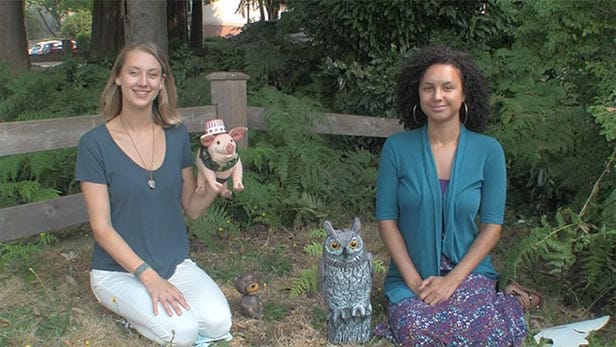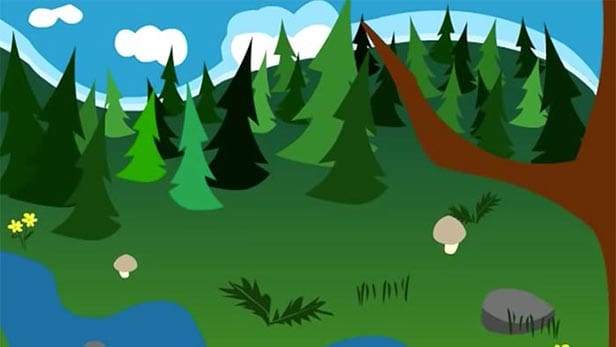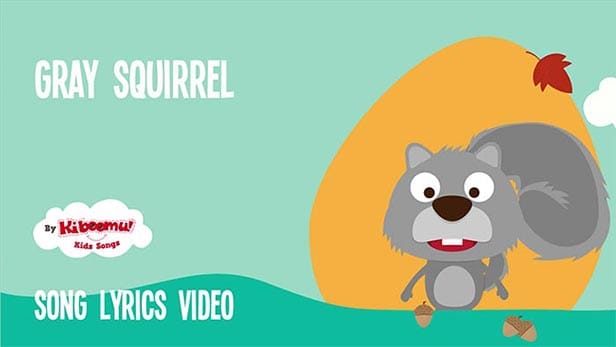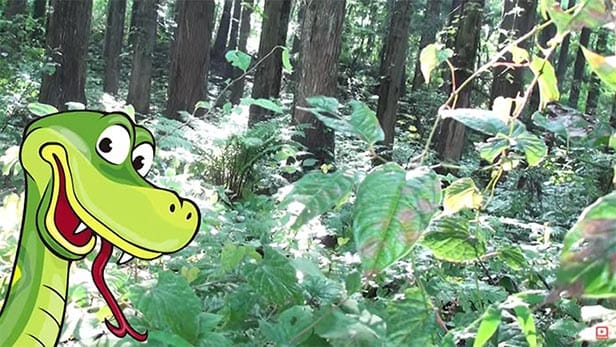Objectives
Practice listening to and saying some language phrases and vocabulary, on their own and in context.
- Deer, owl, crow, squirrel
Video introduction
Have students watch the video as an introduction to the unit. First time they watch it, second time they can call out the items in the video by name, as prompted by the teacher.
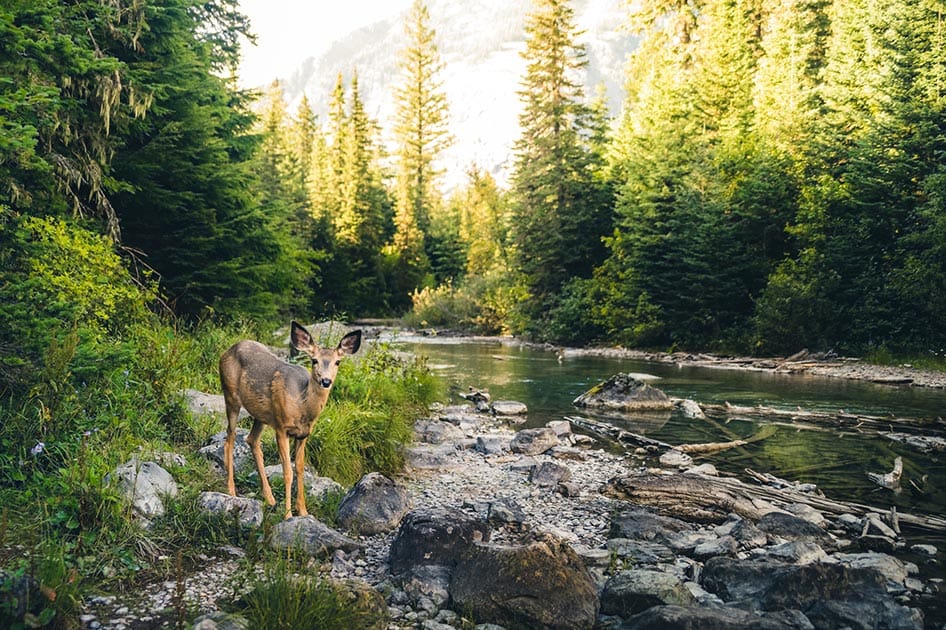
Audio
The audio phrases are the target language. It is played 3 times. First time, just listen. Second time, listen and repeat. Third time, circle items on worksheet while they listen and repeat.

Woodland Animals Worksheet
The worksheet is to be used in 2 ways. First, the items on the top are to be circled while listening to the audio. Second, the bottom portion is to be filled out by each student. The bottom part can be shared with the class once complete, giving students an opportunity to talk about what they’ve made, using target language.
Grey Squirrel, Shake your Bushy Tail Song
This song is a good, fun song to learn and sing along with. Students can do actions to it too.

Babies, Babies, Babies! Book
The picture book can be printed and given to pairs of students who take turns “reading” it to each other.

Reading Time
The story book “The Tallest Tree” should be purchased ahead of time or borrowed from the library. Read the story to the students and ask the following questions.
- What fish is in the creek?
DR: (Salmon) - What animals pick the berries?
DR (Deer/The deer) - What insect do we find in the wildflowers?
DR: (A butterfly/butterfly) - What bird comes out in the night?
DR (Owl) - What animal jumps from tree to tree?
DR (Squirrel)
*Ask students counting questions for the corresponding pictures on the very last page of book
